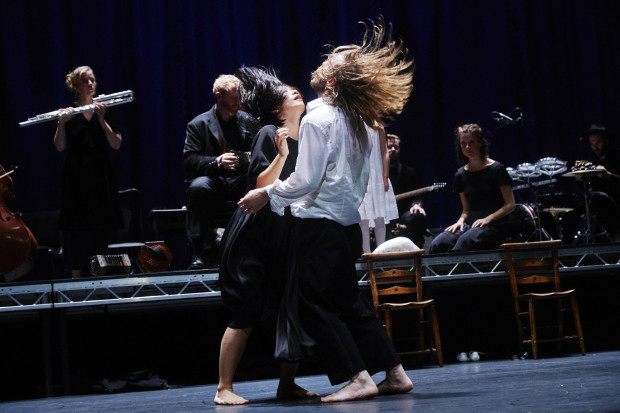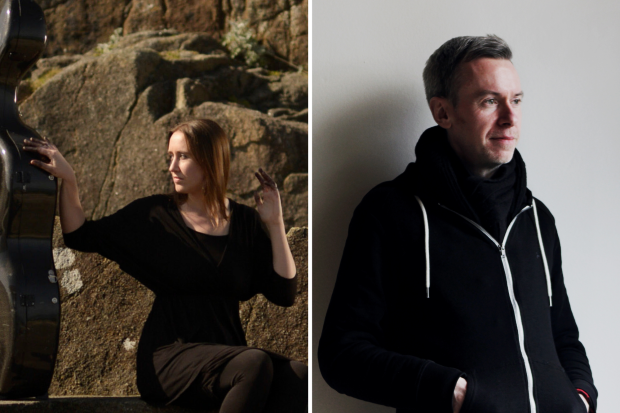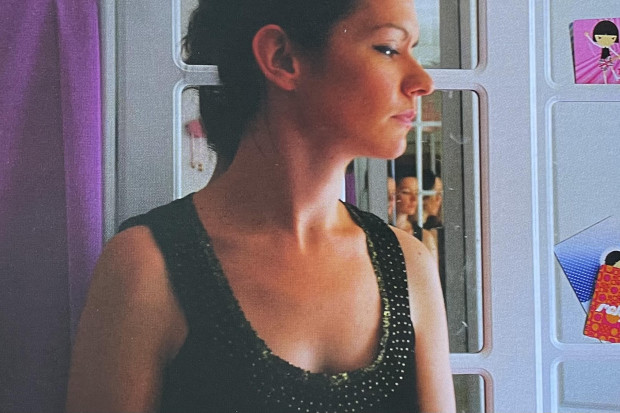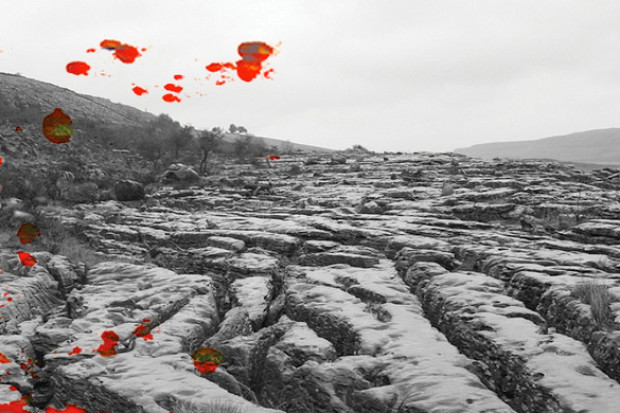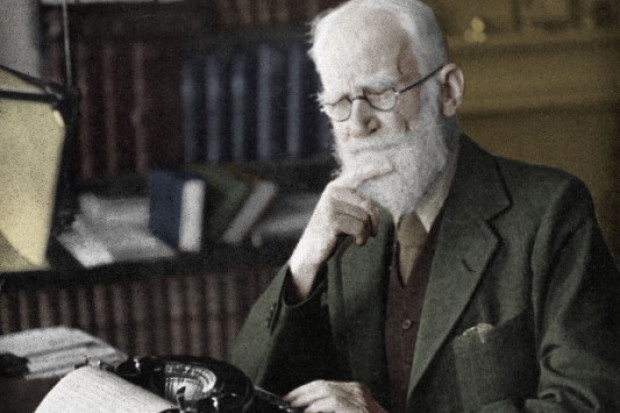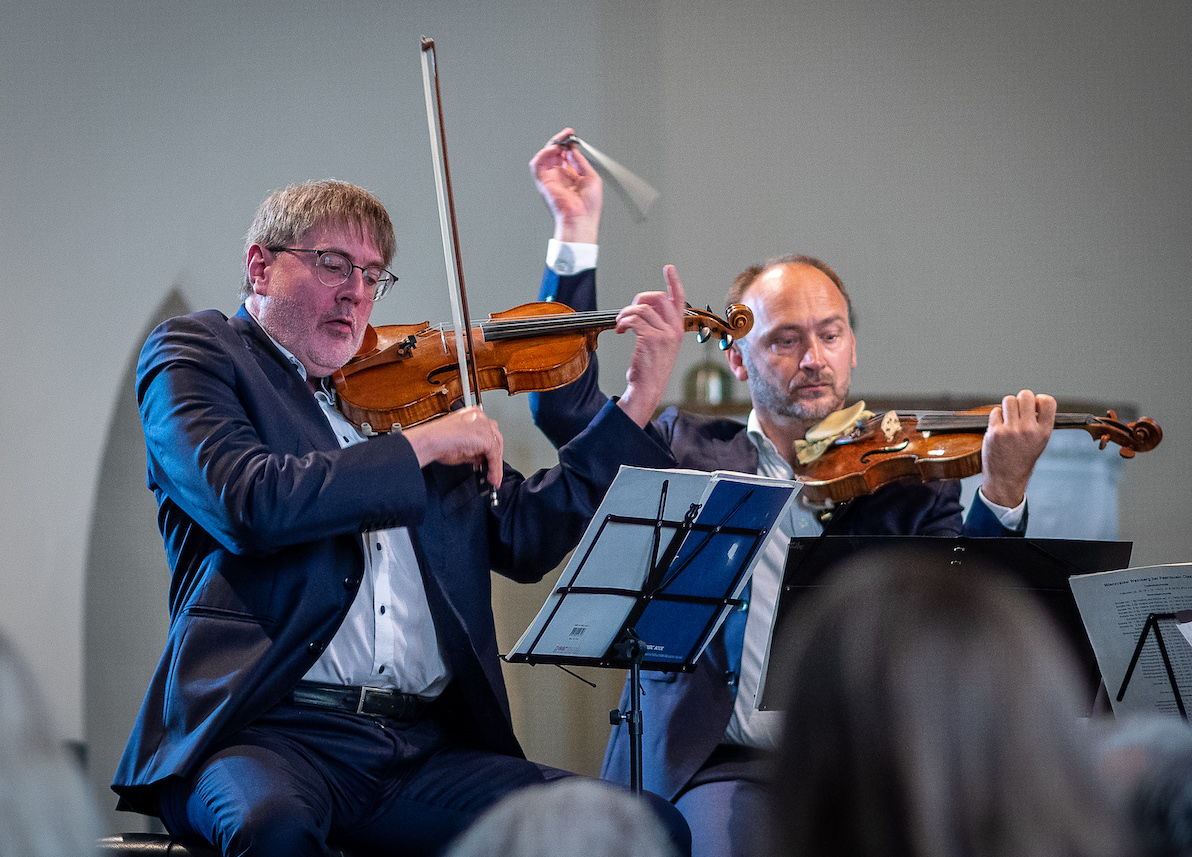
Marc Danel and Gilles Millet of the Danel Quartet performing at the West Cork Chamber Music Festival (Photo: Ben Russell)
In-Depth Experience in West Cork
The West Cork Chamber Music Festival has returned to Bantry after two Covid years of online festivals, and in terms of number of concerts, this was the biggest by far, with 104 events programmed. The expanded programme was possible thanks to the introduction of parallel events. This was done primarily to alleviate audience fears about overcrowded venues, but also allowed the festival to go into more depth in some respects – for instance, presenting all fifteen of Mieczysław Weinberg’s string quartets and several resident ensembles – without putting off those with other interests. It also gave the festival some through-lines of continuity. It does mean, though, that the present review, of fifteen concerts over three days of the festival (27–29 June), is very much a partial snapshot.
Crash Ensemble were resident throughout the time I was at the event, and played a number of new works, including several from the [REACTIONS] series of commissions. Bekah Simms’ Stone or Rot was probably my favourite of these, with its heavily processed double bass that sounded like sonorous gravel. Another new work was Kevin Terry’s Standing Water I and II, actually a pair of works each of which is an exact mirror-image of the other. I saw only II, and was taken by its gentle sustained focus.
There were several resident string quartets. The first of these, the Doric String Quartet from London, performed the complete Bartók quartet cycle. They seemed to be born to play this music: especially in the Second and Third Quartets, they played with a ferociousness that matched Bartók’s, and their stage presence was electric. But it was in the Sixth Quartet that I was fully won over, in the closing Mesto especially: the vulnerability and authenticity here was heartbreaking. Doric also played, with Alasdair Beatson’s ever generous contribution, Elgar’s Piano Quintet in A minor, Op. 84. They were just as at home in this very different world: they did not let up on the intensity, but they were less aggressive and more Romantic.
Finally, they premiered two new works, by Deirdre Gribbin and Australian composer Brett Dean. Gribbin’s Dark Matter Hunting demonstrated her wonderful musical ear and sense of structure and drama, and this was a compelling work. It was also heavily programmatic, and in the notes, Gribbin explained in some detail the astronomical phenomenon that guides each movement. I found this all unhelpful at best and misguided at worst: Gribbin left the astronomy well behind when it threatened the music. The other Gribbin work I saw at the festival, her gorgeous Eileen Gray, Invitation to a Journey (2016), performed by Crash, was similarly programmatic, but here the programme was the life of the eponymous Irish architect, which was more the kind of thing that can be expressed musically.
Dean’s Third String Quartet, subtitled ‘Hidden Agendas’, which was given its Irish premiere here after being co-commissioned by the festival in 2020, was well paired with Bartók’s Third Quartet: it had a similar approach to dissonance and momentum, a similar anger. As with Gribbin’s Dark Matter Hunting, though, the programmatic element – something milquetoast about, in Dean’s words from the programme notes, the current ‘political climate of extreme personalities, Twitter-outrage, group-think and other challenges to the democratic process’ – was a distraction from the sensitive and vibrant music. For example, in the movement titled ‘self-censorship’, the musicians played with un-rosined bows, and were thus barely audible. This gimmick does nothing to deepen anyone’s thoughts about that complex phenomenon. But on its own terms, the movement was excellent.
In addition to Doric’s Bartók cycle, the French Danel Quartet played Weinberg’s fifteen string quartets. I only caught the Fourth and Fifth, which Weinberg wrote in 1945 when he was in his mid-twenties, and which sound like it. Danel played with a maturity and poise that was less flattering to the music than a noisier or more juvenile performance would have been – which is to Danel’s credit.
The Signum and Pavel Haas Quartets were the final two senior string quartets present at the festival. I caught the Pavel Haas’ performance of Brahms’ Piano Quintet in F minor, Op. 32, with Boris Giltburg and with Dana Zemtsov standing in for Luosha Fang, which was another highlight: the Pavel Haas play with a wild energy similar to the Doric Quartet’s, and Giltburg’s resonant, clear piano complemented them perfectly.
Student quartets
A number of student string quartets also played during the festival, and the senior quartets held workshops with them. I heard fulsome words about these young ensembles from many affable and knowledgeable strangers, and heard the Leggiadro Quartet myself. This quartet played charmingly and with great unity, but though their sensibility suited Borodin’s Second Quartet, which opened their concert, in Janáček’s ‘Kreutzer Sonata’ Quartet they could have done more to plumb its emotional depths. They also played a second work by Kevin Terry, Ground Loop – Articulations (2021), a meditative work that was successful but for the slightly forced and unnecessary climax.
Yet another highlight was tenor Nicholas Mulroy, who I caught in two powerful concerts. In the first, he played two of Britten’s Canticles (with pianist Julius Drake and horn player Alec Frank-Gemmill) and Vaughan Williams’ On Wenlock Edge (with Drake and the Hill Quartet); in the other, Schubert’s Die Schöne Müllerin (with Drake). Mulroy’s voice is pure and light, and attentive to the feelings of his songs, especially when they tend to the tragic.
Although the festival as a whole contained a fair amount of pre-Classical music, the only concert from this era that I caught was Ensemble Molière’s intriguingly programmed concert, ‘The Dancing Star’, centred on Marie Sallé (1707–56), an innovator of dance and choreography. The concert comprised arrangements of music written for her by composers such as Handel and Rameau. It was nicely performed – and had a smashing encore – but most interesting was the picture created of Sallé’s life and context. As far as I can see, she was the only non-living woman in the festival.
Marking the war in Ukraine
The programme for the festival was released in December, so there was no possibility that it could respond to the invasion of Ukraine, but it did attempt to mark it in some way. Most notably, the Ukrainian pianist Anna Fedorova, who was supposed to perform in 2020 before Covid put paid to that, paired her performance of Chopin’s four Ballades with Ukrainian composer Valentin Silvestrov’s The Messenger (1996). Her performance of the Ballades was limpid and controlled – but the Silvestrov was an odd piece. It is based on an unapologetically Mozartian melody, and Fedorova herself referred to it as ‘escapism’, but whether in itself or in Fedorova’s interpretation, it had a bitter grief: sometimes the pedal swamped the melody, there were gaping fermatas in the music, and sometimes the rubato was so extreme that it sounded as if the music had gotten lost before brusquely returning to the Mozartian central theme. It was a child wandering lost in a bombed-out city.
The other solo piano concert I saw was a programme of dance pieces performed by Zoltán Fejérvári. The most arresting of these was Bach’s B-flat-major Partita. Fejérvári played the piano like a harpsichord: not just in his strict avoidance of pedal and free ornamentation, but in his approach to rubato: at one point in the Menuets, he actually swung it. It was an idiosyncratic and delightful interpretation.
Festival magnetism
From an organisational point of view, the festival overcame Covid admirably. The printed programme was generous and a snip at €10, with some concerts getting three pages of detailed and loving notes; the spate of Covid-related cancellations the festival had to endure was communicated effectively, with refunds and rebookings offered promptly. On the topic of money, the tickets were reasonably priced (ranging from free to €15 for one-hour concerts, more for full-length evening concerts) and had concessions for young people and students. The concerts with songs provided free lyrics sheets. A small army of volunteers seems to have been involved in keeping everything running smoothly, and they deserve huge credit for their efforts.
I attended a fraction of the hundred-odd concerts put on over the course of the festival’s ten days, not to mention workshops, talks and masterclasses, and I have not even given a full report of what I heard. There’s no end to what I was sorry to have missed: the rest of Crash’s, Danel’s, and Ensemble Molière’s residencies; a lot more new music by Irish and international composers; Martin Hayes; Malcolm Proud’s Well-Tempered Clavier Book 1; Messiaen’s Harawi; and on and on. And then too there was the Covid-cancelled Biber Mystery Sonatas and Bach gamba sonatas.
The festival is a huge production, but despite its size and variegation, it is consistently excellent, and this is reflected in the extraordinary magnetism it has for die-hards from all over the world. Founder and director Francis Humphrys is to be credited here: he had an intimate knowledge of everything on the programme, and indeed wrote a good deal of the programme notes. It is a marvellous festival, and I wonder if enough Irish people know just how special a festival it is; for all that it is celebrated here, the audience seemed mainly English and North American while I was there. But the festival is not just a prestigious event to speak proudly of, it’s a musical haven, held together by a profound passion for music, and it’s a great way to spend a week.
The West Cork Literary Festival, also run by West Cork Music, runs from 8 to 15 July. Visit www.westcorkmusic.ie.
Published on 5 July 2022
James Camien McGuiggan studied music in Maynooth University and has a PhD in the philosophy of art from the University of Southampton. He is currently an independent scholar.










